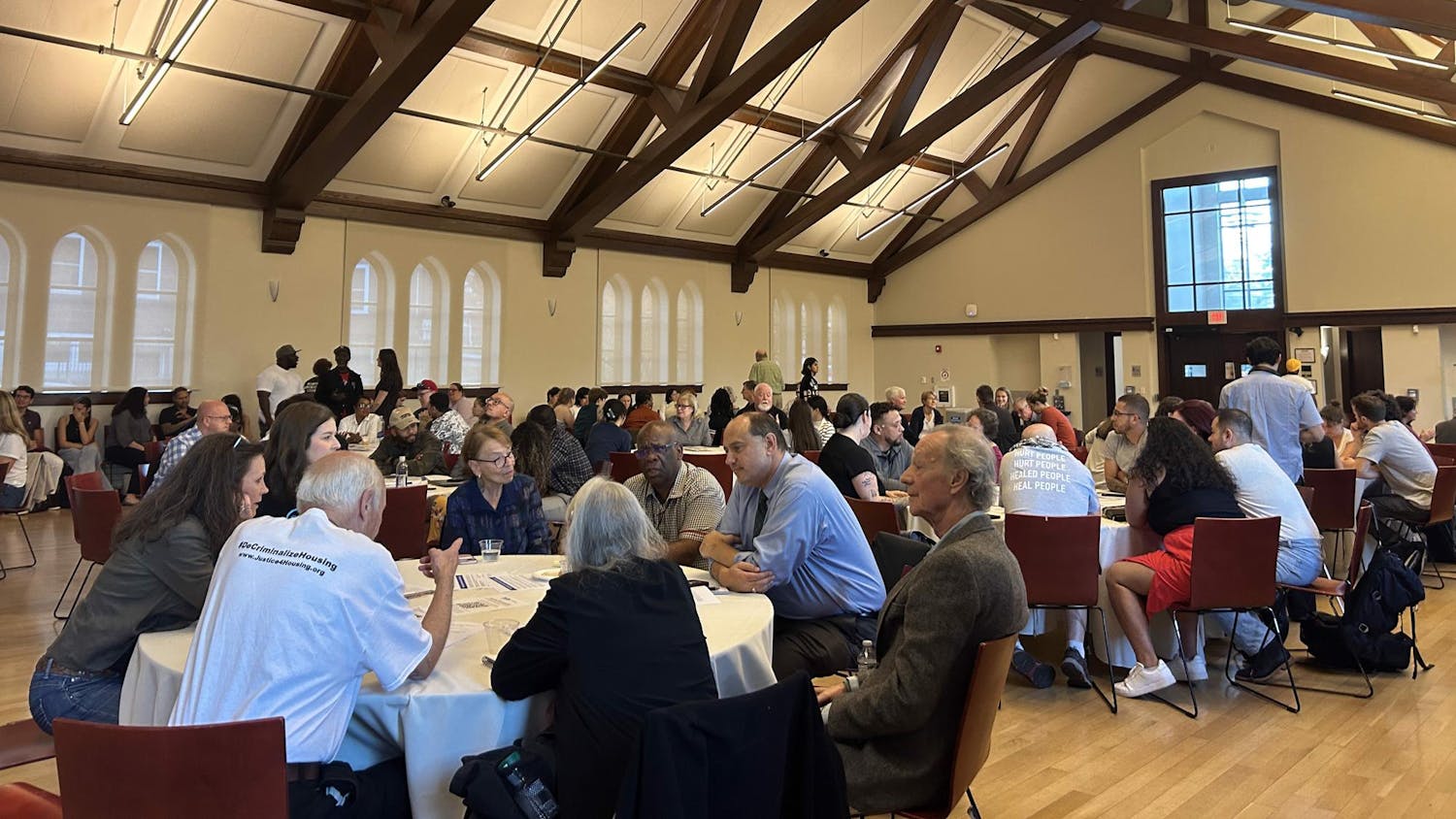Content warning: This article discusses sex and consent.
Tufts Sex Health Reps welcomed Conner Habib to present about consent, intersectionality, sexuality and society at Cohen Auditorium yesterday evening. Habib is an author, lecturer, adult performer, activist and host of “Against Everyone with Conner Habib,” a podcast and web series, according to Han Lee and Elena Phethean, both sophomores and Tufts Sex Health Rep Coordinators, who introduced Habib. Kareem Khubchandani, Mellon Assistant Professor of Drama and Dance, moderated the talk.
Lee explained that it was important to the Tufts Sex Health Reps to invite a speaker who could shed light on today’s political climate and the #MeToo movement.
“We really wanted to talk about intersectionality, and especially because Conner has done a lot of work in ... talking about his race and his identity and how that plays into the porn industry," Lee explained. "We really just wanted to bring that all together ... especially because the discussion right now is about consent and the #MeToo movement."
Habib first focused on the intersectionality of sex and culture, explaining that his role as a sex worker is more important than any of his other identities.
“Even more so than being a man who’s attracted to men or being Arab, I identify as a sex worker ... because that’s where the most oppression is. That’s where the most threats are to me and my identity," he said. "Even when I’m not making porn … I know that my porn is still out there ... and what I’ve done is legislated against, regulated, stigmatized, all that sort of stuff, even if people are enjoying it.”
He then argued that consent is a cultural construct, heavily influenced by one’s community and surroundings.
“Consent is constructed by cultural forces, and the way it’s constructed ends up filtering into what we consider to be healthy sexuality," he said.
He urged the audience to think critically about consent.
“Who is framing consent? Who’s empowered by the kind of consent that is being framed? And who is not? Who is being disempowered by it?" he asked. "Because [consent is] still about … protecting people from something. What are we protecting people from? And who’s benefitting from this protection?”
Habib described that consent is framed for college students through an individual college's policy on sexual conduct.
“When you have sex with each other, how many of you have consented to have a threesome with the person who wrote the code of conduct manual for your school?" he asked. "Because the people that made these frameworks are in the room with you ... telling you what to do. Your sexual experiences as well as what you consider consent are shaped by other parties that shape how that sexual experience happens. We don’t get to consent to the kind of consent we get.”
Finally, Habib explained that sex does not exist within a binary of pleasure and violation, but rather is neutral.
"We have so many anxieties and fears and concerns and insecurities wrapped up in sex that once we get to have it, it can cause problems for us, or it can cause problems afterwards," he said. "Sex is neutral, and we need to remove sex from these poles of totally pleasurable and immersive or totally violated, and we need to remove it from the narratives of what the state and corporate narratives are about sex, about monogamy, love and interaction.”
After the talk, Habib engaged in a question-and-answer session with Khubchandani and Tufts students, discussing labor politics, power structures in porn, sex and spirituality, prejudice, erotica in the classroom, race-based porn, performed aggression and Arab identity.
“I thought it was great to have both historical perspective that tells us that consent is not a universal right, and that it’s specifically people of color and queer people who have bared the brunt of that," Habib explained in an interview with the Daily. "We really spectacularize sex and the reason we’ve done that is to manage race, gender, class, power … So I really liked the idea of naming sex as neutral, so that it can mean many, many things.”
Habib described what inspired him to be an activist.
“Being intelligent is probably what has brought me more suffering and stigma than any other aspect of my identity," Habib told the Daily. "Where I grew up, it was preferable to be stupid and obedient, and so my determination to be an activist was really loneliness. I felt lonely in the ideas I was feeling and thinking, ... and so I wanted to create spaces where ideas could be discussed in a deep way.”
Habib also gave general advice for Tufts students exploring their sexualities and thinking about consent.
“There’s the work that’s happening on campus, which is to negotiate and talk about communication of consent between two people. What needs to happen in addition to that is examining your own desires and boundaries, so you can do that on your own," he said. "No one has a right to push you on what your boundaries are, but we have a duty and responsibility to examine our own boundaries and try to understand them, so we don’t use them merely as weapons against others.”






